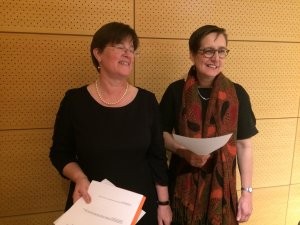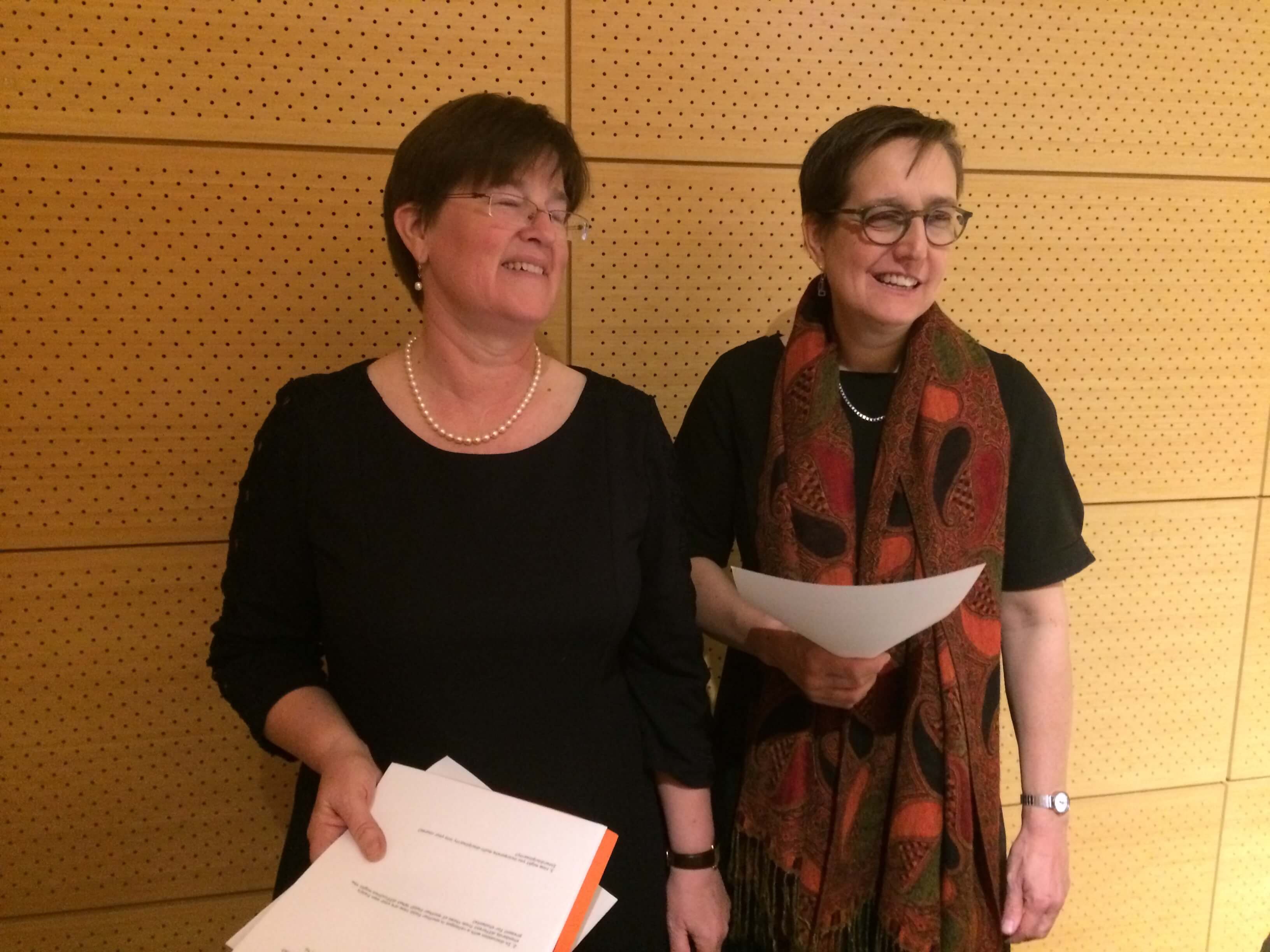
On April 5, 2019, Catherine Duckett, Ph.D., associate dean of the School of Science, and Heide Estes, Ph.D., professor of English, presented a workshop entitled “Interdisciplinary Team Teaching to Improve Student Engagement” at the 2019 Science Education for New Civic Engagements and Responsibilities (SENCER) Innovations in Education Conference held at the Eugene Lang College of Liberal Arts at The New School in New York City. Duckett and Estes have taught several classes as a team and will teach a Humans and the Environment First Year Seminar class in the fall.
Estes, a professor of medieval literature, and Duckett, an evolutionary biologist, created the interdisciplinary course Humans and the Environment to discuss the impacts of climate change through integrating perspectives from literature and biology. Students are challenged to understand the impacts of rising atmospheric and oceanic carbon concentrations in long-term ecological perspectives, to learn about the recent history of climate science debates, and to understand how literature can help to understand the development of current attitudes about environmental issues.
“Students who did not respond well to a science-only presentation often showed greater interest in the material when Dr. Estes and I taught literature and science together,” said Duckett. “They certainly can envision themselves as change-makers after the personal environmental commitment project that Heide designed.”
Duckett and Estes’ presentation at the SENCER conference discussed the challenges and benefits of team teaching, including a crash course in another discipline as well as adjusting to another faculty member’s work habits, teaching style, and grading expectations. Estes and Duckett asked participants to imagine collaborating with someone in a non-science discipline—for instance history, politics, literature, or art—and to consider what this collaboration could bring to a course as well as what problems or challenges they would face. What would they remove from an existing course to make room for collaboration? What would remain, but change? What would they under no circumstances be willing to give up? How would the two disciplines enhance one another (as opposed to another discipline functioning in the service of a science-based course)? How would they challenge one another?
Duckett and Estes believe that teaching a course with a colleague from another discipline is a worthwhile intellectual endeavor for faculty and students alike.
“Science can clone a dinosaur; humanities can tell you why this might be a bad idea,” said Estes. “More seriously, scientists understand why climate change is happening and predict some possible future effects. As a scholar of early medieval literature, I can show students that the ideas about human entitlement to natural ‘resources’ are very deeply embedded in culture, and we need to change how we think about the natural world and our relationships with it, not just try to use technology as a band-aid solution.”
SENCER was initiated in 2001 under the National Science Foundation’s Course, Curriculum, and Laboratory Improvement program’s national dissemination track. Since then, SENCER has established and supported an ever-growing community of faculty, students, academic leaders, and others to improve undergraduate STEM education by connecting learning to critical civic questions.

